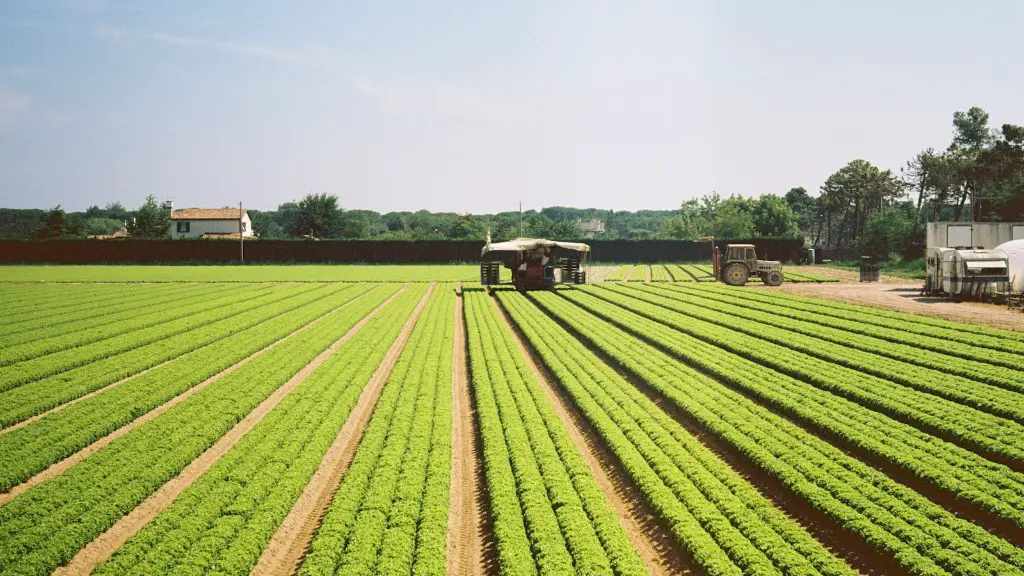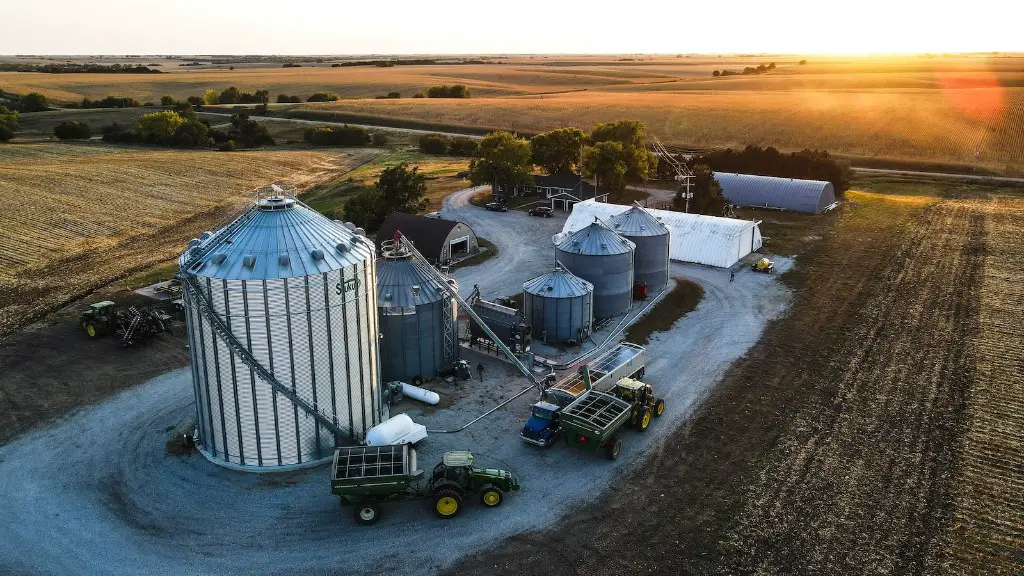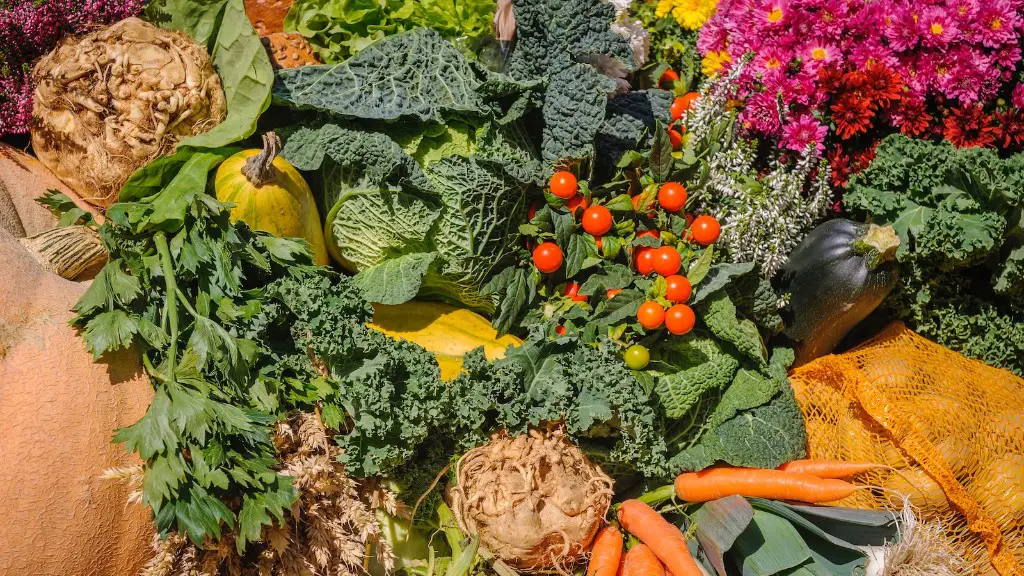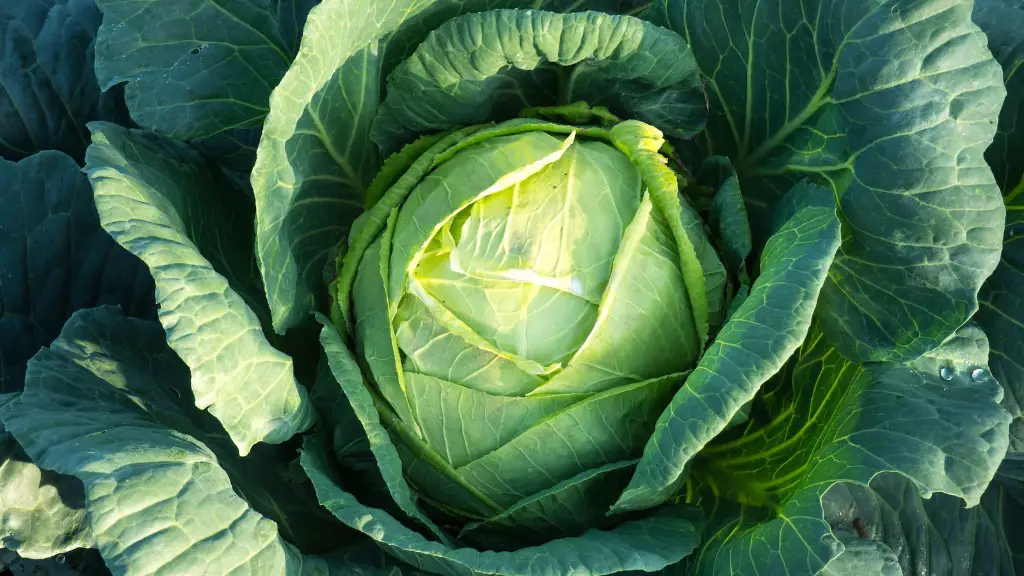Biotechnology is an important tool that can help farmers to produce more food with fewer inputs. It can also help to improve the quality of food and make it more resistant to pests and diseases. Additionally, biotechnology can help to reduce the negative impact of agriculture on the environment.
Biotechnology is important in agriculture for a variety of reasons. It can help to increase crop yields, improve the quality of crops, and make crops more resistant to pests and diseases. Biotechnology can also help to reduce the need for chemical fertilizers and pesticides, and can be used to produce biofuels.
What is the importance of biotechnology in agriculture?
Biotechnology can be a great help to farmers in terms of making production cheaper and more manageable. For example, crops that have been engineered to tolerate specific herbicides can make weed control simpler and more efficient. This can save farmers a lot of time and money in the long run.
Products developed with agricultural biotechnology can help to reduce greenhouse gas emissions in a number of ways. For example, cover crops can be used to provide sustainable biofuels, and fruits and vegetables can be genetically engineered to stay fresh for longer, reducing food waste.
What are 5 benefits of biotechnology
Biotechnology has a range of benefits that can be used to improve sustainable production of chemicals, energy, food and other materials. Genetically modified crops, for example, can be used to increase food production in a more sustainable way, while bioprocesses that use seawater can be used to produce fuel and chemicals with zero waste. In addition, biotechnology can be used to create new organs for regenerative medicine.
Biotechnology has the potential to provide many benefits, particularly in the areas of environmental protection, higher crop yields, and improved human health. For example, biotechnology can be used to develop crops that are more resistant to pests and diseases, which can reduce the need for chemical pesticides and fertilizers. Additionally, biotechnology can be used to develop crops that require less water or are more tolerant of drought conditions, which can help to conserve water resources. Finally, biotechnology can be used to develop new and improved medicines and treatments for human diseases.
What are the five advantages of using biotechnology for agriculture development?
The use of biotech plants can help to increase food production while reducing the amount of land needed. This is because biotech plants are less likely to be affected by disease and pests, and they can also reduce the amount of carbon dioxide emissions from the farming process. In the future, the use of biotech plants may also help to reduce the amount of water needed to grow crops.
Biotechnology is a field of science that utilizes living cells and cellular materials to create pharmaceutical, diagnostic, agricultural, environmental, and other products to benefit society. It is also used to study and to alter genetic information in animals so that human diseases can be modeled and studied.
What are 10 benefits of biotechnology?
Biotechnology has played a significant role in improving the nutritional quality of crops. It has also helped in the reduction of worldwide hunger by improving food security. The minimal use of pesticides on farms has also been one of the major advantages of biotechnology. Additionally, it has empowered farmers by providing them with more economic opportunities. Additionally, biotechnology has also helped in the preservation of resources. It has helped in the elimination and minimizing of waste products. Finally, it has also aided in the genetic screening of crops.
Agricultural biotechnology has the potential to increase crop yields and reduce pesticide use while making crops more resilient to climate change. However, there are also potential negative impacts on human health, the environment, and biodiversity that need to be considered.
What are three examples of how biotechnology might be used in agriculture
Biotechnology is the use of living organisms to create or improve products. In agriculture, biotechnology is used to genetically modify crops and improve plant growth.
Genetically modified crops are crops that have been modified to produce more food or to resist pests and disease. These crops are often more productive than traditional crops, and can help farmers to reduce their reliance on pesticides.
Biofuels are another example of how biotechnology is being used in agriculture. Biofuels are made from plant material, and can be used to power farm equipment and vehicles. Biofuels are renewable and can help to reduce emissions from farming.
Improving plant growth is another area where biotechnology is being used in agriculture. Researchers are working on ways to improve the growth of crops, and to make them more resistant to drought and pests.
Improving plant seed quality is another area of research in agricultural biotechnology. By improving the quality of seeds, farmers can produce higher-yielding crops.
Finally, biotechnology is also being used to improve animal health and breeding. Researchers are working on ways to improve the health of livestock, and to develop new breeds of animals that are more resistant to disease.
Agricultural biotechnology is the use of scientific techniques to modify and improve plants, animals, and microorganisms for use in agriculture. This can include developing new varieties of crops that are more resistant to pests and diseases, or producing animals with improved traits such as higher growth rates or greater milk production.
Bacillus thuringiensis (Bt) is a naturally occurring bacterium that can be used as an environmentally friendly insecticide. Bt produces proteins that are toxic to certain insects, but are harmless to humans and other animals. When Bt is sprayed on crops, the insecticidal proteins are ingested by pests that feed on the plants, and these proteins kill the pests.
Herbicides are chemicals that are used to kill or control plants, and they are an important tool for farmers. However, some herbicides can also pose risks to human health and the environment. For example, glyphosate is a widely used herbicide, but it has been linked to cancer in humans.
Genetically modified (GM) foods are foods that have been created by using genetic engineering techniques. These techniques allow for the introduction of new genes into plants or animals, which can be used to improve the food’s characteristics. For example, GM soy
What is the most important in biotechnology?
Biotechnology is one of the most important advances in recent years for its implications in health and medicine. Through genetic engineering – the controlled alteration of genetic material – scientists have been able to create new medicines, including interferon for cancer patients, synthetic human growth hormone and synthetic insulin, among others. This has had a huge impact on the quality of life for many people around the world.
Biotechnology has helped to increase productivity and economic output from agriculture related fields such as horticulture, floriculture, animal husbandry, apiculture, etc. This has been achieved through the use of various biotechnology techniques such as DNA sequencing, gene editing, and the use of genetically modified organisms (GMOs). These techniques have helped to improve crop yields, develop new and improved animal breeds, and create new strains of bees that are more resistant to disease.
What is the concept of agricultural biotechnology
Agricultural biotechnology is a range of tools that can be used to alter living organisms or parts of organisms to make or modify products, improve plants or animals, or develop microorganisms for specific agricultural uses. Biotechnology has been used in agriculture for centuries, but the term “agricultural biotechnology” only came into use in the late 20th century. Agricultural biotechnology can be used to create more nutritious food, to increase crop yields, to increase the resistance of crops to pests and diseases, and to make crops more tolerant of environmental stresses.
Biotechnology has a wide range of applications that are important in many different fields. One of the most important applications is DNA profiling, which is used in forensics and identity testing. DNA cloning is also a very important application, as it allows for the production of genetically identical copies of organisms. Transgenesis is another important application, as it allows for the transfer of genes between different organisms. Genome analysis is also a vital application of biotechnology, as it allows for the identification and study of the genes of organisms. Finally, stem cells and tissue engineering are important applications that are used in the medical field to treat a variety of diseases and injuries.
What is biotechnology and its impact on agricultural management?
Genetically modified crops are used in managing agriculture in the following ways:
They are pest resistant, so the use of chemical pesticides and weedicides can be avoided.
They can be used to create more efficient strains of crops, which can result in higher yields and better quality products.
They can be used to create crops that are tolerant to environmental factors such as drought or frost.
Overall, using GM crops can help to improve the efficiency and productivity of agriculture, while also protecting the environment.
Biotechnology has played a major role in the development of crops that are resistant to herbicides, pests, and drought. This has resulted in increased yields and reduced costs for farmers. Additionally, biotechnology has led to the development of crops that are tolerant to salty soils, which has helped farmers in areas with high salinity levels.
How does biotechnology change the world of agriculture
Thanks to biotechnology, farmers have adopted no- and reduced-tillage systems which utilize herbicidal weed control rather than plowing. With improved weed control, plants are healthier and do not have to compete for nutrients in the soil. Healthier plants result in improved yield.
Biotechnology has been extremely helpful in the development of vaccines and treatments for disease. It has also been instrumental in helping us to understand how infectious diseases are transmitted so that we can take steps to reduce their spread.
Warp Up
There are a few reasons why biotechnology is important in agriculture. The first is that it can help to increase crop yields. This is important because it can help to ensure that there is enough food for everyone. Secondly, biotechnology can help to improve the quality of food. This is important because it can help to make sure that people are getting the nutrients they need. Finally, biotechnology can help to make agriculture more sustainable. This is important because it can help to conserve natural resources and reduce the amount of pollution that is produced.
Because biotechnology is important in agriculture, it helps farmers to produce more food with fewer inputs, such as land, water, and labor. In addition, biotechnology can help to improve the quality of food, making it more nutritious and less susceptible to disease. In the long term, biotechnology can help to sustainably increase food production, which is essential to feeding the world’s growing population.





